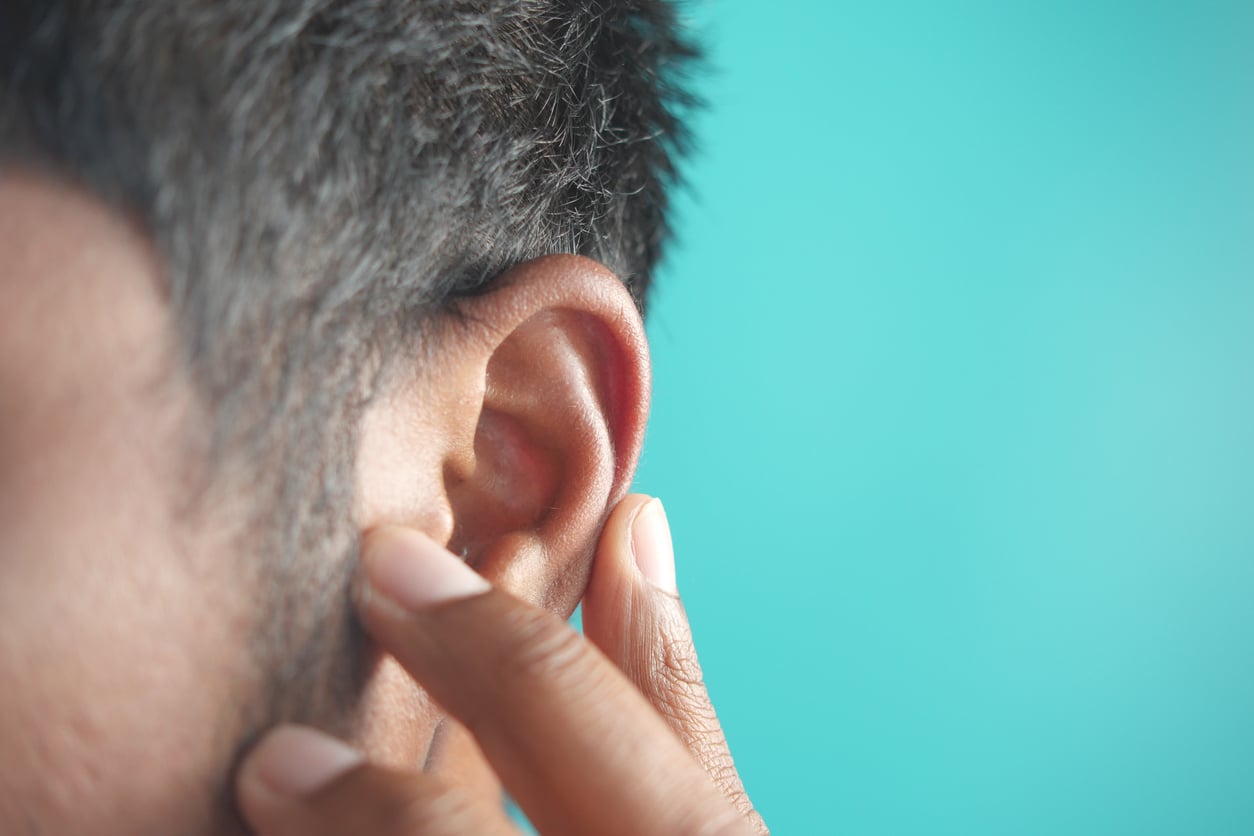Ear pain is often associated with ear infections, but there are many other possible reasons for discomfort in or around the ears.
Read along to understand potential causes for ear pain without infection to help you determine the next steps for relief.
TMJ (Temporomandibular Joint Dysfunction)

The temporomandibular joint connects the jaw to the skull and is located near the ear. When this joint becomes irritated or inflamed, it can cause pain that feels like an earache.
Symptoms of TMJ-Related Ear Pain
- Jaw pain or stiffness
- Clicking or popping sounds when chewing
- Headaches or facial pain
What Helps
- Avoid chewing gum and hard foods
- Apply warm compresses to relax the jaw muscles
- Practice stress-reducing techniques to minimize jaw clenching
Eustachian Tube Dysfunction
The Eustachian tubes connect the middle ear to the throat to drain fluid and help regulate pressure. When they become blocked due to allergies, sinus infections or changes in altitude, it can cause a feeling of fullness and ear pain.
Symptoms of Eustachian Tube Dysfunction
- Muffled hearing
- Popping or crackling sounds
- Sensation of pressure in the ears
What Helps
- Yawning, swallowing or chewing gum to open the tubes
- Using a saline nasal spray to reduce congestion
- Trying decongestants if recommended by a doctor
Sinus Infections or Allergies
Congestion and inflammation from seasonal allergies or sinus infections can put pressure on the ears, leading to pain. Since the sinuses and ears are closely connected, sinus issues often cause referred pain in the ears.
Symptoms of Sinus-Related Ear Pain
- Nasal congestion
- Facial pressure or pain
- Postnasal drip
What Helps
- Using a humidifier to keep nasal passages moist
- Taking antihistamines or decongestants as needed
- Drinking plenty of fluids to thin mucus
Other Possible Causes of Ear Pain
If your ear pain isn’t from an infection, other possible causes include:
- Earwax buildup
- Tooth infections or dental issues
- Neck strain or muscle tension
- Foreign objects in the ear
- Acid reflux (GERD)
When to See a Doctor
If your ear pain is persistent, severe or accompanied by symptoms like hearing loss, dizziness or drainage, see a doctor. They can help identify the underlying cause and recommend appropriate treatment.
While ear pain without an infection can be frustrating, understanding the potential causes can help you find relief and prevent future discomfort. Contact Blue Ridge ENT to schedule an appointment today.